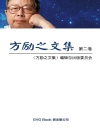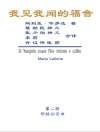Beginning Anew is a work of memory and history, a distinguished historian’s account of his family’s immigration to the United States in the aftermath of World War II and of his coming of age and education in a new land. The author, Jan de Vries, raised in Minnesota, is Professor Emeritus of History and Economics at the University of California at Berkeley, where he also served as a dean and vice provost.
In Beginning Anew he reconstructs the world of his Dutch parents and ponders the factors pushing them to leave Holland and pulling them toward the United States. From a distance it seems almost inevitable; up close it was anything but. Chance factors resulted in the family landing as farm laborers on a Minnesota farm in the cold, snowy January of 1948. What resources were available to them as they made their way in their adopted land? What makes the difference between success and failure? Their community, church, and personal resources all played a role. As did chance, or was it Providence?
The author uses memory and history to delve in to the process of his becoming American – or perhaps Minnesotan – while finding that certain influences held him back from a full conversion. He considers the spirit of the communities in which he lived, the ethos that pervaded the public schools in which he was educated, the influence of the Dutch Calvinist church in which he was raised – but also the radio stations to which he listened and his many years of summer work as a construction laborer, working side by side with his father. All these elements formed a world now lost but brought to life in this book in an evocative work of historical reconstruction that is respectful of the past but unsentimentally direct in its assessments.
All the while, Holland, the country left behind, continued to make its presence felt: Letters and old magazine sent by relatives, stories told and retold of Dutch life’s pleasures and problems, and finally an important trip to visit relatives after years of absence.
If the parents began anew with their decision to emigrate, the son begins anew in a different way, when he rejects more cautious paths and pursues higher education in New York City, at Columbia University. The first of his family to enter higher education, the author has his own take on the academic and social life he experienced in the 1960s and this is revealed in candid accounts of his encounters with teachers and fellow students.
College life was transformative in many respects, but not in all ways. Beginning Anew essays the limits of transformation by education as De Vries is alternately exposed to luminaries of mid twentieth century American society and immersed every summer in construction labor with his father.
College led De Vries to an interest in history and economics. The book’s final section is an account of graduate study at Yale and the revolution then underway in the study of economic history. Studying both history and economics, De Vries is introduced to two distinct academic worlds and learns to appreciate and to critique them both. His interests lead him back to the Netherlands, where he encounters a very different academic environment and a circle of new colleagues who simultaneously influence his scholarship and his sense of identity. All the while, the Vietnam War, social upheaval, and marriage are intertwined with the launching of an academic career as the 1960s reach a point of climax and exhaustion.
Über den Autor
Jan de Vries is Sidney Hellman Ehrman Professor of History and Economics Emeritus at the University of California at Berkeley where he served as Vice Provost. He is the author of numerous books and articles in economic history, including The Industrious Revolution and The Price of Bread, both published by Cambridge University Press. He is the recipient of the Heineken Prize in History. Jan de Vries was born in Ouder-Amstel, the Netherlands and raised in Deephaven and Hopkins, Minnesota. He is married with two children and two grandchildren and resides in Berkeley, California.












